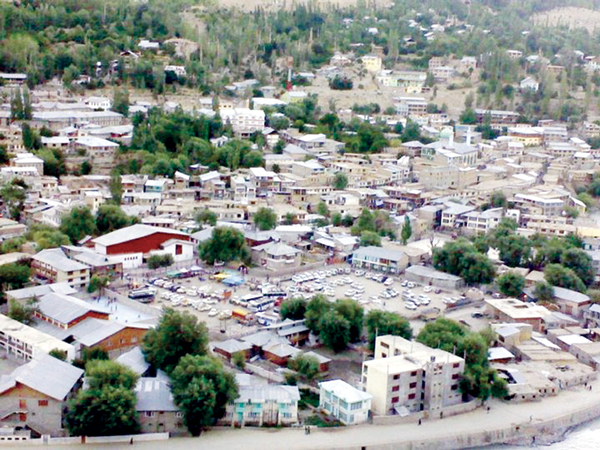Mohammad Ilyass
India has seen unprecedented participation of people across regions in the 2014 Lok Sabha elections. Every phase of this democratic process has brought interesting statistics of voters’ turn-out at polling booths – Delhi saw 65.09 % voter turnout, Mumbai 52 %, West Bengal and Tamil Nadu over 70 %, Bihar 60%, Jharkhand 63.4%, Madhya Pradesh 63%… the list goes on. Clearly, the Election Commission has gone the extra mile to make sure that every single person votes. Following their mandate that no voter should “ordinarily travel more than two km to reach the booth”, an entire election team had set up a polling booth for Mahant Bharatdas Darshandas who is the lone voter in the midst of Gujarat’s Gir forest.
But the exact opposite is transpiring in another geographically extreme corner of the country, in the two districts of Kargil and Leh in the Ladakh region. Around ten thousand Indian citizens, including a large number of youth eligible to cast their vote in Ladakh which goes to the polls on May 7, are unlikely to be able to participate in the world’s largest democratic process. Reason -thelifeline of Ladakh, Srinagar-Kargil-LehNational Highway 1D, which connects the Ladakh region to the rest of the world, is blocked by snow and these thousands of Ladakhis are stuck in Srinagar, Jammu, Chandigarh and other locations, unable to access their hometowns to cast their vote. due to closure of .
The disconnect for nearly six months not only affects the people’s political participation every five years but also the everyday life of the people living in even greater isolation in Kargil District of Ladakh that, doesnot even have the year-round air connectivity that Leh enjoys. Kargil is connected only by the Zojila Pass that becomes inaccessible during the winter months due to extreme weather conditions, thereon beginning period of isolation and great suffering for the people of Kargil.
Located approximately 215 kilometers from the capital city of Srinagar, Kargil, locatedalong the picturesque Suru River, is bestowed with splendid beauty. Until the Kargil War, this land was a forgotten tale surviving in the vast Himalayan plateau virtually unknown to the rest of the country. Though Kargil attracted much attention as a battlefield, the problems and issues of the indigenous population were overlooked; and till date, they haven’t received due recognition.
The harshness of nature is evident in every form in this snowland. From harsh climate to arid landscape, its inhabitants deal with severe challenges, becoming, over the generations,rugged survivors themselves. Situated at an altitude of 2,676 m, Kargil town has the distinction of being one of the coldest places in our country. The mercury may drop to as low as -40 degrees Celsius. Come November and the region’s communication with the outside world is virtually cut off for six months, thick sheets of snow will cover the brown and ochre mountains, bringing the entire Kargil district to a standstill.
But before the valley goes to sleep, the six summer months are full of hard work for its people preparing for the harsh winter days ahead. “There is no start or finish line in our tasks of preparing for the winter. We stock up piles of wood, dung, coal, wheat, onion, dried vegetables, pulses and oil, so that we don’t face shortage of these items in winter. We hibernate in our small mud houses,” says 45-year-old Sajjad Hussain.
The outcomes of such low temperatures are not limited only to restricting people to their homes, but are sometimes dangerous. Heavy snowfall blocks the roads and the entire pass becomes inaccessible. In case of a medical emergency, it becomes really difficult to take the patient to the doctor, assuming they are available in the health care centres. The hostile conditions of the region usually drive away teachers, doctors and other government officials who dread being posted to such difficult areas.
Another problem is the absence of electricity. Extremely low temperatures cause the diesel and water to freeze. “We cannot use our vehicles before ten or eleven in the morning as the fuel freezes at night. We burn wood and light stoves under the fuel tank to bring it back to liquid state,” says Najumul Huda, a young activist from Kargil.
Even the telephone wires are snowed under by avalanches – thus snapping the region’s connection with the outer world. “In any case, there are very few towers available to connect the calls easily, but during winters it becomes almost impossible to get a call connected. Technology has solved so many issues of our country then why cannot Kargil can have a telecommunication system available all-year round?” asks Mohammad Baqir, a class 11 student from Sankoo.
Since this is the “political season”, every party is trying to lure the voters by talking about the Zojila tunnel. Congress Vice-President, Rahul Gandhi, while addressing a rally in April, said that the government has approved the construction of a tunnel through Zojila pass. But no one talks of when the work to construct the tunnel will actually start.
The construction of the Zojila tunnel is unlikely to be completed in time for the elections on May 7. In lieu thereof, the only request of the people of Ladakh to the Election Commission is to install special polling booths in Jammu for students hailing from Ladakh- Kargil region, to enable them to cast their votes and avail their right as citizens of an equal India.
Charkha Features
Trending Now
E-Paper


